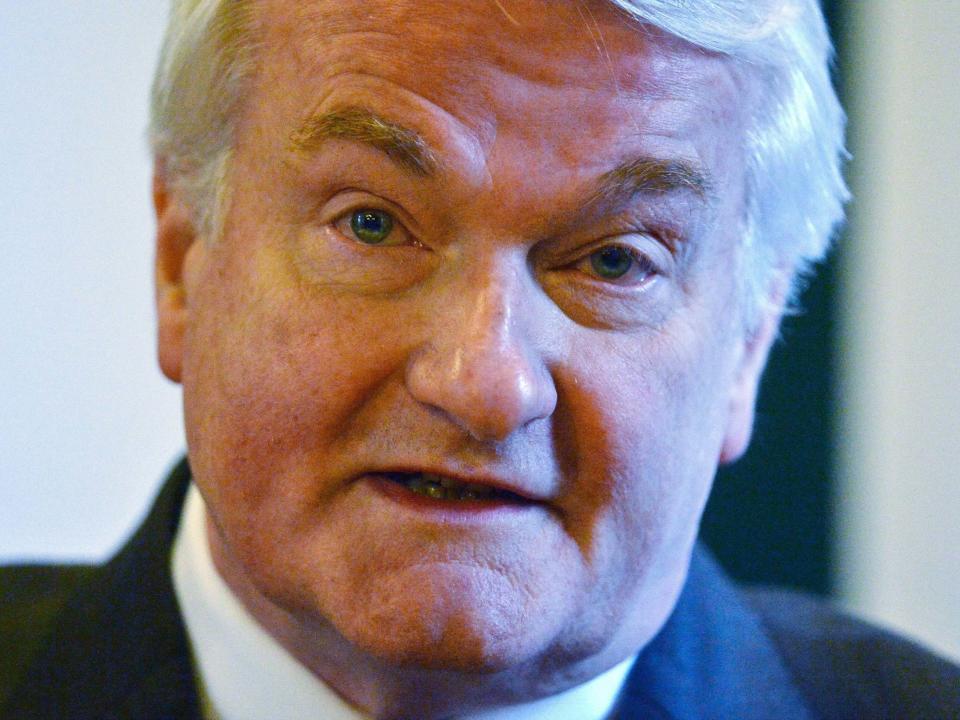Lord Chief Justice sounds warning over unprecedented political interference in courts

The Lord Chief Justice, Lord Burnett of Maldon,
(Kirsty O'Connor/PA Wire)The Lord Chief Justice has warned of unprecedented levels of political interference over the work of courts in England and Wales, suggesting that MPs should be taught about “boundaries”.
Lord Burnett of Maldon referred to an “unfortunate letter” recently sent to senior judges by Conservative MPs and a peer over the Charlie Elphicke case.
The former Tory MP for Dover was jailed for two years for sexual assaults in September, and the parliamentarians were attempting to stop supportive character references being made public.
Speaking at his annual press conference on Tuesday, the Lord Chief Justice said the letter was just one of a “number of recent instances which might be thought to be interference”.
“There has been nothing quite like it in my experience,” he added.
“There needs to be sensitivity displayed by all branches of the constitution - so that is the legislature, the executive and the judiciary as to the proper sphere of the others.
“I am pretty confident that judges understand where the boundaries lie, but I am less confident at the moment that all parliamentarians have an instinctive understanding of where those boundaries lie.”
Lord Burnett, who is the most senior judge in England and Wales, said the judiciary was considering drawing up a “short briefing” for new members of the Commons and Lords.
He said it would describe “the boundaries between our respective roles and the need to respect the independence of the judiciary”.
His comments came a day after the attorney general, Suella Braverman, took the rare step of personally calling for the Court of Appeal to increase the prison sentences given to three teenagers who killed a police officer.
Legal professionals previously criticised the government’s response to Supreme Court rulings on Boris Johnson’s prorogation of parliament, which was judged to be unlawful, and forcing a parliamentary vote on the triggering of Article 50.
In August, the government sparked further alarm by announcing a probe of the judicial review process, which will look at whether judges should have the power to overrule decisions by the government’s executive branch.
The Lord Chief Justice has publicly spoken out against the prime minister and home secretary’s recent comments on immigration lawyers, after a backlash against Home Office material on “activist” solicitors representing asylum seekers.
On Tuesday, he said lawyers should “not be subject to criticism for doing their job” by representing clients.
“The vitality and independence of the legal profession is an essential hallmark of a society governed by the rule of law,” he added. “A general attack on the legal profession, in my view, undermines the rule of law.”
Asked what should be done about the remarks, he said he would not favour any “coercive further steps against politicians” and added: “I think this is something which is best dealt with by calm response from the professions, and I hope my response will be judged to have been calm, to explain why attacks of that sort are not appropriate.”
Lord Burnett also called for the government to ensure that the justice system is properly funded to deal with case backlogs that have mounted during the coronavirus pandemic.
He said that courts were currently subject to financial constraints despite being “demand-led”, contrasting their position with other public services.
“It would be enormously disappointing were the increases announced by the Chancellor of the Exchequer last week seen as one-off,” he added.
“The longer the gap between the reporting of an offence and its eventual trial, the more likely it is that something will go wrong. It can be as simple as important witnesses losing interest, for example, in continuing to pursue the case.”
The Lord Chief Justice said that while magistrates’ courts were hearing more cases than before coronavirus, the position was “more difficult” in crown courts because of social distancing.
Read More
Government attacks on lawyers ‘undermine rule of law’, says judge
Home Office condemned for describing solicitors as ‘activist lawyers’
Against the wishes of No 10, the rule of law has come out on top

 Yahoo Finance
Yahoo Finance 